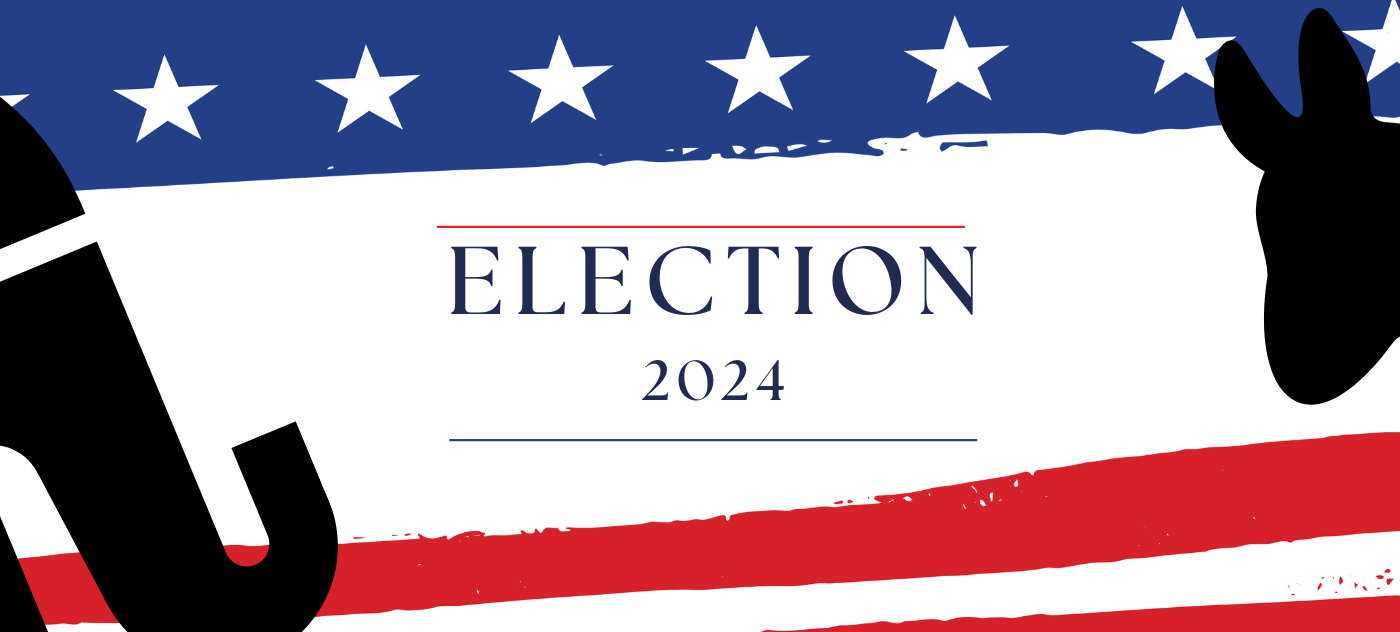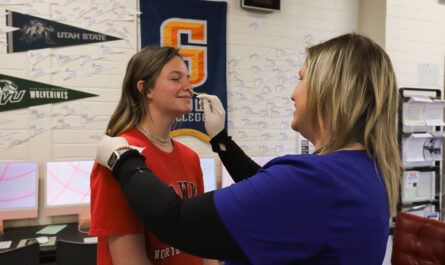With Election Day being on Nov. 5, many students, even those who cannot vote, have a lot on their minds. Elections affect NS students in profound ways.
As of Oct. 29, 48 percent of Americans would vote for Harris and 47 percent would vote for Trump, according to a New York Times survey.
According to a survey conducted by NS Times, 47 percent of NS students would vote for or are voting for the Republican candidate, Donald Trump, while 29 percent would vote for or are voting for Kamala Harris, and 24 percent of respondents wrote in other individuals not running for president, but only one student named an additional candidate, the American Solidarity Party candidate Peter Sonski.
Many students have strong feelings about the election.
“I frankly don’t think either candidate [would be] the perfect president,” junior Elgen Tidwell said, “but, of the two, Trump is far and above the smartest and most optimal decision.”
Not every student had the same opinion.
“I would vote for Kamala Harris,” junior Andy Larsen said. ”I would prefer [for Trump] to not be president again.”
While most students at NS are not 18, which makes them ineligible to vote, research shows that the election does affect young people.
According to a 2018 study by DeJonckheere, Fisher and Chang titled “How has the presidential election affected young Americans?,” 86 percent reported being emotionally affected pre-election, with 71 percent affected post-election and 63 percent four months after. 20 percent of respondents reported being physically affected pre-election and 19 percent post-election.
Both Harris and her running mate, Tim Walz and Trump and his running mate, J.D. Vance, want what they believe is best for the United States. There are certain issues that they are both focusing on, like strengthening the middle class, safeguarding freedoms, lowering healthcare costs and fixing the broken immigration system.
On the topic of the immigration system, Trump-Vance’s goal is to build a wall on the southern border of the US with a goal of stopping illegal immigration from Mexico.
“I don’t think we need to ‘build the wall,’” Larsen said, “I think we need to take a deeper look into why our immigration system is so messed up.”
Both Harris-Walz and Trump-Vance also claim that they will strengthen the middle class through tax cuts. The Biden-Harris administration enacted tax cuts for the middle class, and so did Trump-Pence. However, there was a lot of criticism for Trump-Pence’s tax cuts for the workers, since there was also a major cut for upper-class people.
They also have different plans when it comes to safeguarding freedoms, which means keeping freedoms available for every citizen. For example, Harris-Walz’s plans include protecting reproductive and civil rights, while Trump-Vance’s include protecting certain constitutional rights, like free speech and liberty. Trump-Vance wants to leave reproductive rights up to the states.
“Broadly, I agree with the belief that under ordinary circumstances, where no lives are threatened, abortion shouldn’t be an option,” Tidwell said.
According to the Guttmacher Institute as of Oct. 7, 2024, under the overturn of Roe v. Wade, 41 states have some sort of abortion restriction in place. 13 have total abortion bans and 28 have bans based on gestational duration, meaning it depends on how far along the pregnancy is. Utah’s ban has been blocked by the courts, leading to it being legal up to 18 weeks.
“I think abortion should be legal across the entire nation,” Larsen said, “children should not be having children, we should have learned that from history and time and we haven’t.”
Another major issue that Trump-Vance and Harris-Walz disagree on is LGBTQ+ rights. Both administrations support same-sex marriage, but they have differing views on other issues, such as participation in sports by transgender people and gender-affirming healthcare.
“LGBTQ+ [issues…] are a subject that I think far too many are afraid of even touching,” Tidwell said. “From my own personal research, I mostly agree with Trump’s viewpoints.”
One of the policies on Agenda 47, which is the policies of the Republican party, is to “keep men out of women’s sports,” referring to transgender women playing in women’s sports. Trans women are assigned male at birth (AMAB,) leading many people to believe that they have a “biological advantage.”
When it comes to gender-affirming healthcare, Harris is in support of it being accessible under supervision of a doctor. In an article by Christopher Wiggins from The Advocate, Harris said “[gender-affirming care] is a decision that doctors will make in terms of what is medically necessary.” The article by Wiggins also reports “Every major medical association… has stated that gender-affirming care is medically indicated and necessary.”
However, some do not share the view that it is medically necessary, including Trump-Vance.
“I believe that the best decision for our future generations is to disallow serious transgender surgeries or medications for minors,” Tidwell said. “I believe that physical or chemical alterations should not ever be recognized as treatments for things like gender [dysphoria.]”
It is important to remember that the student population at NS does not necessarily represent the rest of US voters, but even many students who cannot vote are affected by election season and politics. Everyone wants what is best for the community, so it’s valuable to keep in mind to respect others at NS and their beliefs.




